LATEST INSIGHTS
Your Present Location: LATEST INSIGHTS-
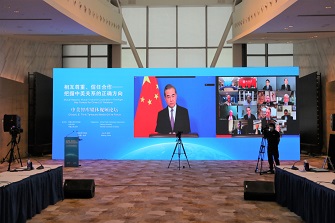
Stay on the Right Track and Keep Pace with the Times to Ensure the Right Direction for China-US Relations --Remarks by State Councilor and Foreign Minister Wang Yi at China-US Think Tanks Media Forum
On July 9th 2020, China Public Diplomacy Association, Peking University and Renmin University of China co-hosted "Mutual Respect, Mutual Trust and Cooperation —— The Right Way Forward for China-U.S. Relations" China-US Think Tanks Media Forum. The State Councilor and Foreign Minister Wang Yi attended the meeting and delivered the keynote speech. Chongyang Institute for Financial Studies, Renmin University of China (RDCY) is one of the main organizers of this forum, and recommend this speech and video of Wang Yi firstly. This article is reprinted from the official website of the Ministry of Foreign Affairs of the People's Republic of China.
2020-07-09 -
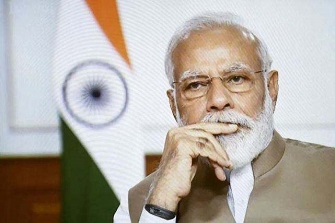
India keeps itself away from East Asian value chain as it refuses to join RCEP
India is distancing itself from the value chain of the East Asian Economy, and it always wants to pay in little but want too much out of joining international organizations such as the Regional Comprehensive Economic Partnership (RCEP). The comment came after The Print said India has decided it won't join any trade deal that has China as a member, citing Indian official sources. The border standoff and Indian government's ban on 59 apps developed by Chinese companies have added tensions to the China-India relationship.
2020-07-09 -
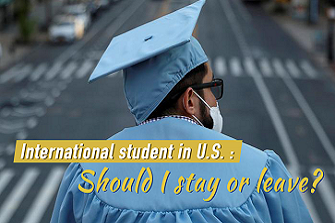
U.S. to force out foreign students taking classes fully online
The United States said Monday international students may have to leave the country if their universities switch to online-only courses for the 2020 fall semester due to the COVID-19 pandemic. Otherwise they will risk violating their visa status. The guidance announced by the U.S. Immigration and Customs Enforcement (ICE) agency applies to holders of F-1 and M-1 visas, which are for academic and vocational students. According to the agency's data, the State Department issued 388,839 F visas and 9,518 M visas in fiscal 2019.
2020-07-08 -

First telemedicine platform for Chinese employees overseas put into use
China's first telemedicine platform for employees of central government-administered enterprises working overseas has been put into operation, aiming to better facilitate the healthcare and medical treatment of Chinese nationals abroad amid the COVID-19 pandemic. The platform has aided 5,284 Chinese employees working in 37 countries and regions along the Belt and Road routes so far, supported by about 100 medical experts based in China.
2020-07-08 -
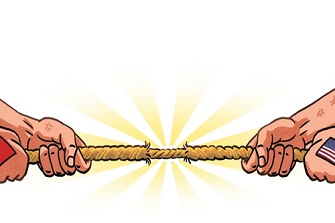
China can deal with the US: scholars
Niall Ferguson and other well-known American scholars have recently published articles contending that a new cold war has broken out between China and the US. What do Chinese scholars think about this issue? The research group on China-US people-to-people exchanges at the Chongyang Institute for Financial Studies, Renmin University of China recently conducted a telephone questionnaire that surveyed 100 Chinese scholars. Here are the results exclusive in the Global Times: Of all the surveyed Chinese scholars, 62 percent believe that the US is indeed waging a new cold war against China. But more than 90 percent believe that China is capable of coping well with the new cold war offensive by the US.
2020-07-07 -
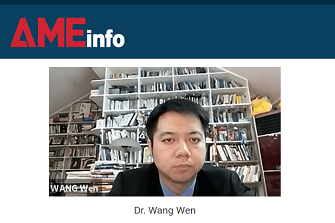
【AMEINFO】"Over 200 million at risk of unemployment": Notable Chinese academic highlights COVID-19 risks
More than 200 million people are at risk of unemployment as human civilization faces a new world war in the form of Covid-19 that can only be stopped by global cooperation, a Chinese expert said while addressing a symposium here on Tuesday. Dr. Wang Wen, Executive Dean of Chongyang Institute for Financial Studies, and Vice President of Silk Road School at Renmin University of China (RUC), also said there is a significant risk of conflict because of social breakdown and instability.
2020-07-07 -

Zhao Xijun: HSBC investing in China driven by interests, not politics
HSBC recently announced it plans to further boost investment in the Chinese mainland, despite the escalating number of critics it faces from Western politicians and media due to its support for the National Security Law for the Hong Kong Special Administrative Region (HKSAR). The company has signaled new investment of introducing demand-driven and customized wealth management and insurance services empowered by digital technologies. In interviews with the Global Times, two Chinese economists noted that the investment move was essentially driven by the firm's demand of business expansion in promising markets, rather than Western media's skewed notion of a political gesture to flatter China.
2020-07-07 -

Liu Zhiqin: Has Europe been naive about its foreign policy toward China for 40 years?
Certain European politicians and scholars have been repeatedly using the word "naive" to describe Europe's foreign policies toward China, defining China as a "systemic rival" and claiming that the EU's naive era is over. Such a notion also reveals a trace of helplessness, self-pity and even frustration over its ignorance, with the words between the lines reading Europe's judgment on China has been wrong.
2020-07-06 -
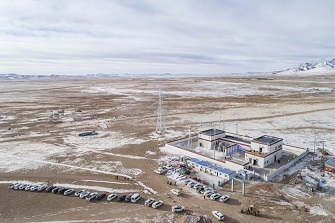
99 years on, CPC leads China's evolution on world economic stage
BEIJING -- Turning 99 this week, the Communist Party of China has much to be proud of. The largest political party in the world has transformed a weak, war-torn nation into an economy with one of the fastest growth rates in recent decades.bYet for the rest of the world, the CPC has offered more than economic miracles and growth locomotives. Under the CPC's leadership, and moving ever closer to the world's center stage, China has evolved from a follower and learner into a champion and contributor of multilateralism and globalization, one that is always willing to share ideas and solutions to address common concerns, especially in times of pandemic and recession.
2020-07-06 -

【Albilad Daily】Chinese academic highlights Covid-19 risks at TRENDS E-Forum
ABU DHABI, July 1 – More than 200 million people are at risk of unemployment as human civilization faces a new world war in the form of Covid-19 that can only be stopped by global cooperation, a Chinese expert said while addressing a symposium here on Tuesday.
2020-07-06 -
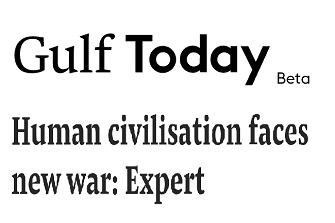
【Gulf Today】Human civilisation faces new war
More than 200 million people are at risk of unemployment as human civilisation faces a new world war in the form of Covid-19 that can only be stopped by global cooperation, a Chinese expert said while addressing the e-symposium organised by Trends Research & Advisory, Abu Dhabi. Dr. Wang Wen, Executive Dean of Chongyang Institute for Financial Studies, and Vice President of Silk Road School at Renmin University of China (RUC), also said there is a significant risk of conflict because of social breakdown and instability.
2020-07-06 -
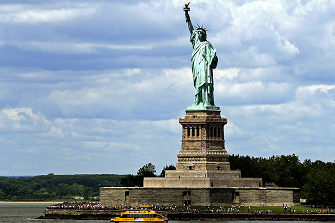
William Jones: Fourth of July celebrations in the shadow of the virus
As the American people prepare to celebrate Independence Day on July 4, the increased spread of the coronavirus throughout the country will cast a dark shadow over the celebrations, whatever reduced form they may take this year. While there may have been some hope in the early spring that a certain amount of normalcy would have returned to the country by July, the abortive attempt to "reopen" the country before COVID was under control, and without the necessary warnings of maintaining a modicum of protection, such as social distancing, masks, etc., has led to a resurgence of the epidemic in those reopened states.
2020-07-06 -
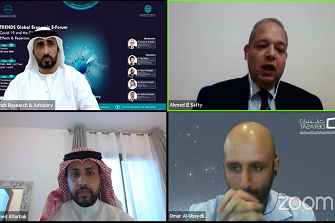
【Arab News】Wang Wen: New ‘world war’ can only be stopped by global cooperation
More than 200 million people are at risk of unemployment as human civilization faces a new world war in the form of COVID-19 that can only be stopped by global cooperation, a Chinese expert has told symposium in Abu Dhabi. Dr. Wang Wen, executive dean of Chongyang Institute for Financial Studies, and vice president of Silk Road School at Renmin University of China (RUC), said there is a significant risk of conflict because of social breakdown and instability.
2020-07-03 -
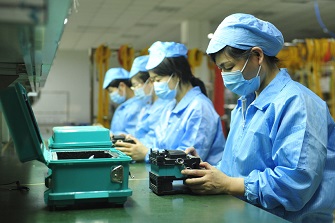
Liu Yuanchun: Insufficient demand now biggest challenge facing business vitality
The recovery of the Chinese economy from the COVID-19 pandemic has entered a new stage as boosting market demand has replaced supply-side support as the top policy priority. As the government pushes business resumption and policy assistance to help market entities overcome difficulties, China's economy has rebounded at a faster-than-expected speed from the impact of the novel coronavirus contagion.
2020-07-03 -
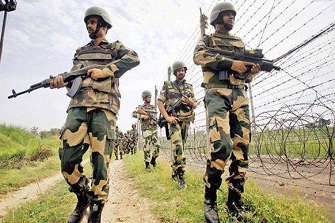
Liu Zongyi: Why did the bloody Galwan clash taken place?
The Galwan Valley border clash was an unfortunate incident. Liu Zongyi, secretary-general of the South Asia and China Center of the Shanghai Institutes for International Studies, argues that a repeat is inevitable if Delhi cannot shake off the specter of Nehru, originator of the “offensive defense” border policy, and reconsider its relations with Beijing.
2020-07-03 -
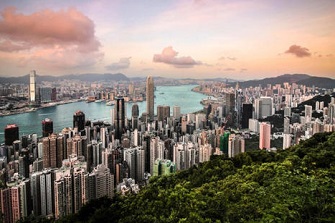
Law breathes new life into Hong Kong
Law-abiding businesses won't hesitate to welcome the newly adopted national security legislation for Hong Kong, as a stable political environment is conducive to their business operations, local companies and market analysts said. The city has been scarred in 2019 by social unrest, seriously damaging its business climate, while the new law, which took force on the eve of the 23rd anniversary of Hong Kong's return to the mother land on Wednesday, breathes much-anticipated new life into wide-ranging businesses traumatized by the year of tumult.
2020-07-02 -
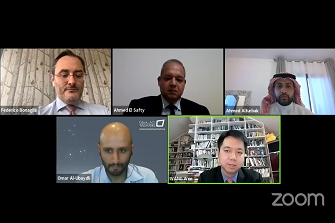
Wang Wen: Without unity, the world might be in a "Dark Age"
Actually facing this unknown, unexpected disease, China launched a very big battle to COVID-19 for five months and control basically COVID-19 spreading since the end of the February. But the problem is that in the past four months, there are no infections in most parts of China. But most of people who live in China still wear masks to prevent the transmission of COVID-19. On June 15th, Beijing, my living city, the capital of China, reported new domestically transmitted COVID-19 cases, there are about 10 daily new confirmed cases now, since the middle of this month. And this further makes us realize that the pandemic is turning into a protracted war. No one can relax. Even, as you may know, in China totally in the last five months only below 9000 cases.
2020-07-02 -

Indian ban on Chinese apps will backfire on tech sector
Analysts said that the Indian government's ban on 59 apps developed by Chinese companies will hurt India's technology and internet start-ups as they lose Chinese investment. On Monday, India announced it would ban the apps over national security concerns. "The compilation of these data, its mining and profiling by elements hostile to national security and defense of India, which ultimately impinges upon the sovereignty and integrity of India, is a matter of very deep and immediate concern which requires emergency measures," read the statement, which came after the latest standoff between China and India.
2020-07-01 -
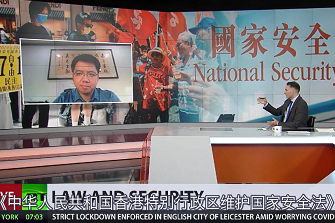
Wang Wen Interviewed by RT on National Security Law on June 30, 2020
Editor's Note: Wang Wen, the Executive Dean of Chongyang Institute for Financial Studies at Renmin University of China (RDCY), interviewed by Russia's top international media "Russia Today" (RT) and shared his opinions on National Security Law on June 30,2020. The following is the full text of the interview.
2020-07-01 -
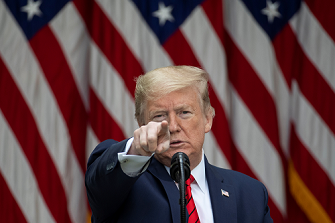
Zhao Minghao: Washington's 'narrative warfare' on Beijing
In their latest move, U.S. National Security Adviser Robert O'Brien, and Secretary of State Mike Pompeo attacked China's domestic and foreign policies as well as its political system in harsh, unmerited rhetoric. In the coming weeks, U.S. Attorney General William Barr and several senior Trump administration officials, are also expected to deliver tough speeches on China, to highlight the so-called "China threat" in trade, technology and ideology.
2020-06-30
























































































 京公网安备 11010802037854号
京公网安备 11010802037854号





